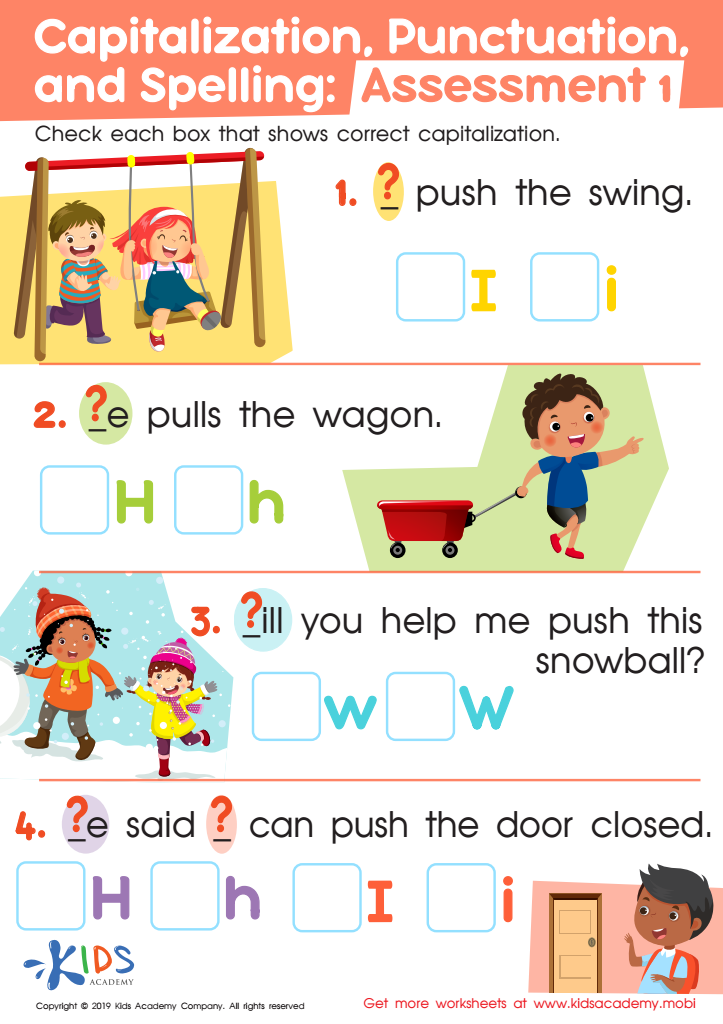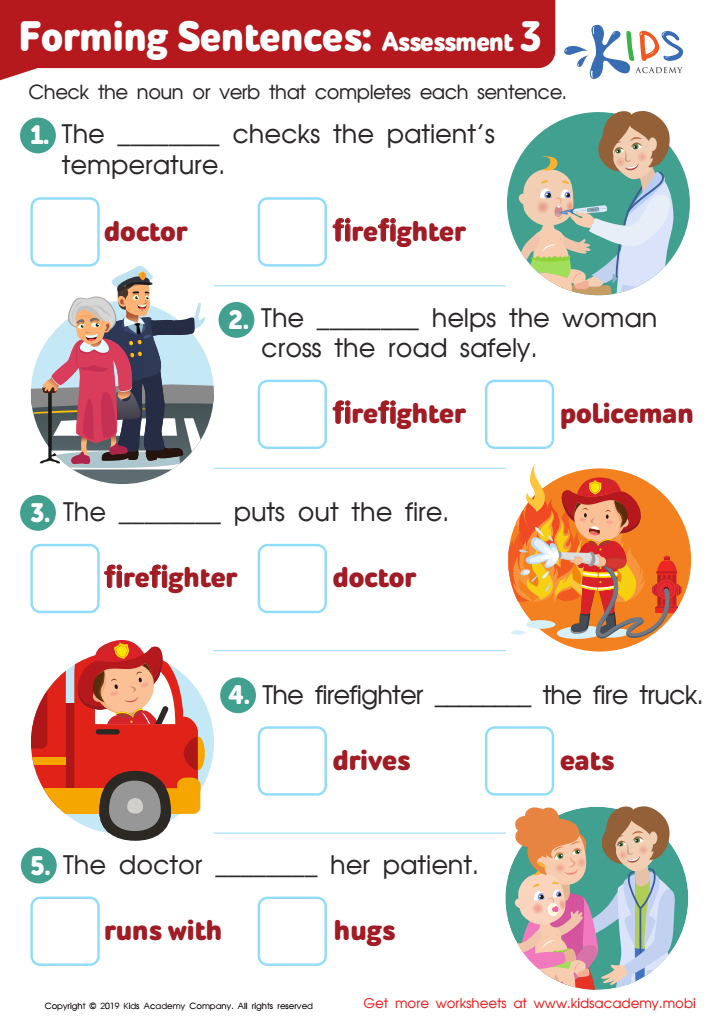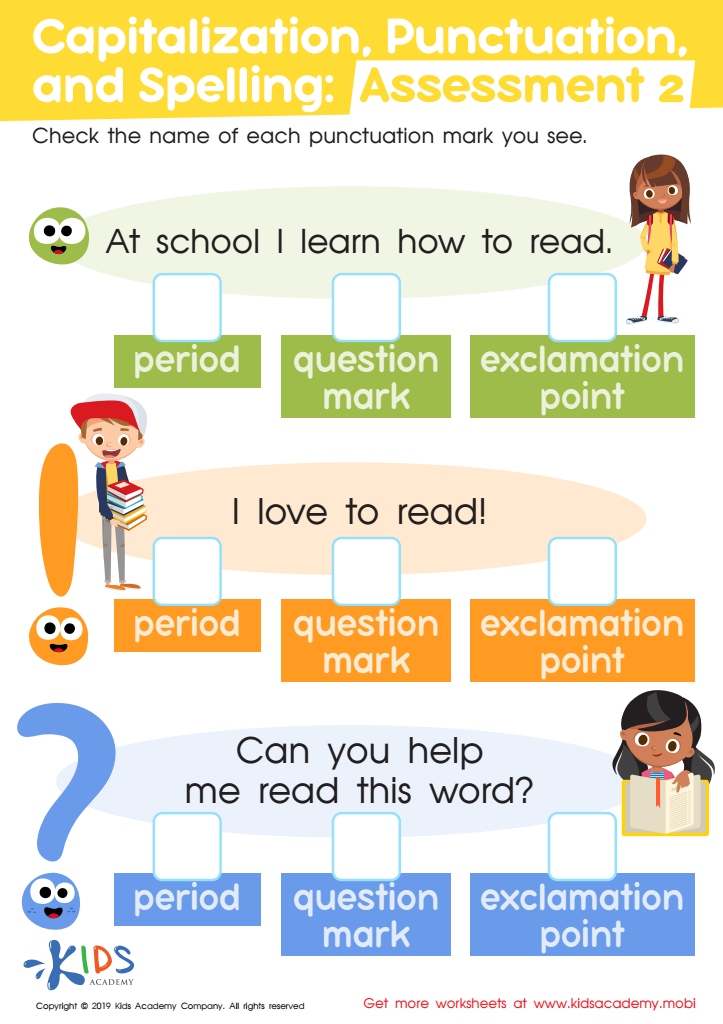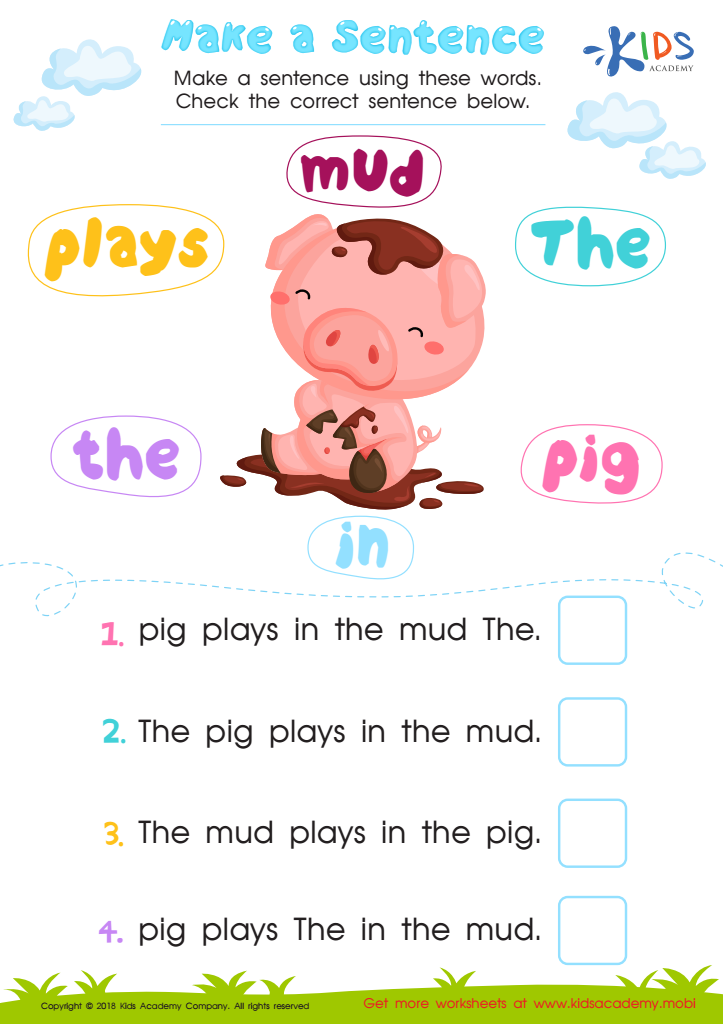Easy Writing Worksheets Activities With Answers for Ages 4-8
4 filtered results
-
From - To
Discover our collection of easy writing worksheets designed for children ages 4-8! These engaging activities will ignite your child's creativity while enhancing essential writing skills. Our worksheets cover a variety of fun themes and prompts, making learning enjoyable and interactive. Clear answer keys accompany each activity, providing parents and educators with valuable support. Perfect for homeschooling, classroom use, or extra practice, these resources aim to boost your child's confidence in writing. Explore our user-friendly format that encourages expression and comprehension, ensuring your little ones build a solid foundation in literacy through enjoyable learning experiences. Start your writing adventure today!


Capitalization. Punctuation. Spelling: Assessment 1 Worksheet


Forming Sentences: Assessment 3 Worksheet


Capitalization. Punctuation. Spelling: Assessment 2 Worksheet


Assessment: Make a Sentence Worksheet
Easy writing activities for children ages 4-8 are crucial for fostering early literacy skills and overall development. First and foremost, these activities help young learners develop fine motor skills, as they engage in writing exercises that require grip control and coordination. This physical aspect of writing is foundational for future academic success.
Additionally, engaging in simple writing tasks cultivates creativity and self-expression. Children learn to articulate their thoughts and ideas, building confidence in their communication abilities. By offering structured easy writing activities, teachers and parents can create a supportive environment that encourages exploration of language and storytelling.
Moreover, these activities serve to enhance vocabulary and understanding of sentence structure. As children complete prompts and responses, they expand their word bank and are introduced to basic grammar concepts in a playful way. This lays the groundwork for more complex writing skills as they progress in their education.
Finally, easy writing activities foster a love for writing at an early age. When children find joy in sharing their stories or completing fun prompts, they are more likely to continue pursuing writing in the future. Parents and teachers should prioritize these activities as essential tools for building the foundational skills necessary for lifelong literacy.
 Assign to My Students
Assign to My Students


















